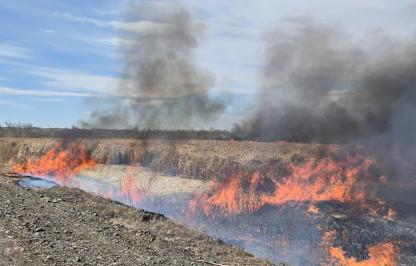Be mindful of tularemia when outside this fall
This disease has been unusually active this year, so it’s particularly important to follow some common sense precautions to avoid being infected. So far there have been 16 documented human cases this year in Wyoming. Tularemia is generally a disease of rabbits, muskrats, beavers and squirrels, but can be transmitted to many other species through the bites of infected ticks and biting flies.
Direct contact with an infected animal, consuming undercooked meat, or even drinking contaminated water can also transmit the disease. To help prevent exposure, experts suggest these simple guidelines:
Transmission of tularemia can occur at any time of year but the prevalence decreases after the first hard frost, which reduces the numbers of ticks and flies that transmit the disease.
Direct contact with an infected animal, consuming undercooked meat, or even drinking contaminated water can also transmit the disease. To help prevent exposure, experts suggest these simple guidelines:
- Use an insect repellent that is effective against ticks, biting flies and mosquitoes (for example DEET).
- Wear light colored clothing so that ticks are easier to spot.
- Inspect hunting dogs/pets for ticks before returning home from the field and consult with your veterinarian on tick prevention.
- Avoid handling sick wildlife.
- Avoid drinking unpurified water from streams or lakes.
- Wear gloves when field dressing any harvested animal especially rabbits, muskrats and beavers.
- Cook meat thoroughly before consumption, particularly rabbits and squirrels.
Transmission of tularemia can occur at any time of year but the prevalence decreases after the first hard frost, which reduces the numbers of ticks and flies that transmit the disease.
Wyoming Game and Fish (307) 777-4600



